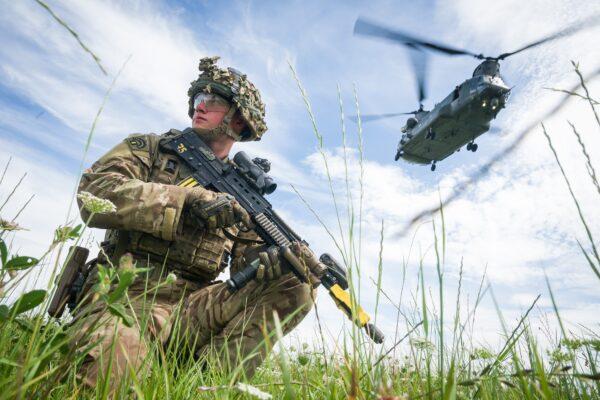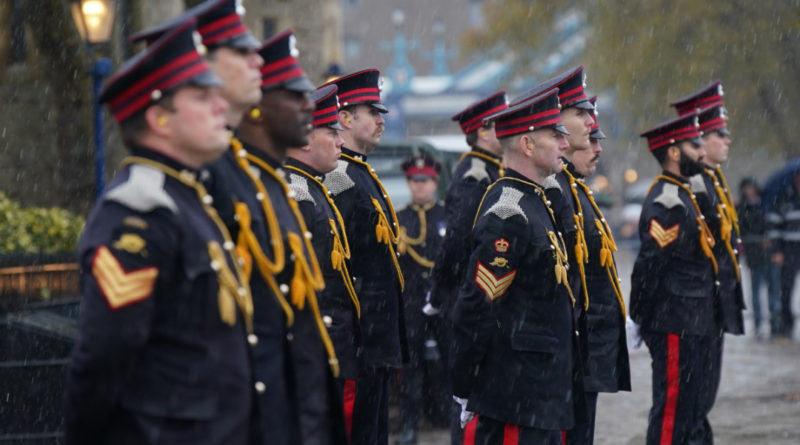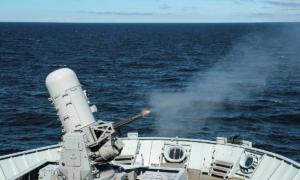Review Reveals Reserve Forces are “Hollowed Out” and Continuing to Decline
The annual report on the state of the three armed forces reserves found that reservists ‘are being paid less than if they were stacking shelves.’
The state of the UK’s armed forces reserves continues to decline owing to a poor recruitment system, low pay, a crumbling estate, and a lack of clarity of purpose, an annual independent review has found.
As of April 2024, the total reserve strength stood at 32,490, down 1,340 compared with 2023 and 4,920 lower than in 2021.
The decline has been particularly significant for the Army Reserve, which has fallen by 3,870 between 2021 and 2024, from 30,030 to 26,160 soldiers, with current trained strength at just 24,070.
‘Hollowed Out’
Retired Maj. Gen. Simon Lalor, who led the review, said that the state of the Reserve Forces had hardly improved since a major commission was conducted in 2011.
Lalor warned of a “real risk” in the tangible decline in the capability of the reserve, “unless there was a coordinated approach to ensuring there was a balanced equation consisting of a clarity of purpose for all personnel and units, combined with demanding training, appropriate scales of equipment and sufficient logistical and administrative support.”
“The Reserve in part has become hollowed out just as much as the regular component is now described,” he said.
Recruitment System ‘Unfit for Purpose’
The retired major general cited “ongoing failings of the recruiting system” as also exasperating risk to the reserve, saying the current system was “unfit for purpose.”
The report noted that only seven out of every 100 applicants to the Army Reserve ended up joining, with many dropping out because of “drift,” rather than being compelled to do so.
According to the report, it takes an average of 10 months to go through the recruitment pipeline, and then a further 10 months to complete basic training. Similar patterns exist across the rest of the reserve, the report said.
It said that “years of tinkering and consistent under delivery” also point to a recruitment system that cannot be repaired.
CRFCA recommended radical reform, replacing its currently “overly centralised system with a ”responsive and localised system that does work.”
Crumbling Buildings and Low Pay
Further, the report warned that the deteriorating Army Reserve Estate—with buildings likely needing to close because they are unsafe—could be impacting negatively on the force’s ability to recruit and retain personnel.
One of the most critical findings in the report is that it may not be financially viable for Britons to join the reserves because because the pay is so poor.

Private Patrick Rodgers of Britain’s Anglian Regiment, 2nd Battalion, maintains the perimeter as a Chinook helicopter carries out a medical evacuation during a military exercise on Salisbury Plains near Warminster, England, on July 23, 2020. Leon Neal/Getty Images
Lalor wrote: “Reservist pay has not kept pace with the increases to the National Living Wage.
“Given … that a reservist balances family, job and reserve service, a reservist’s family cannot help but notice that their reservist family member is not only away, but is being paid less than if they were stacking shelves.”
Continues to Decline
“Our assessment in 2024 is that the health of the Reserve has not improved; it is still poor, and worse, and continues to decline,” Lalor said.
The report follows a speech by defence minister and former Royal Marines Col. Alistair Carns, in which he described Reserve Forces as “critical” to being able to deploy a large enough fighting force in a crisis.
“Without [reserves] we cannot generate mass, we cannot meet the plethora of defence tasks,” Carns said.
Responding to the report, Carns said the pay rise awarded to the Armed Forces this year will bring starting salaries in line with the minimum wage for the first time.
He added that the Army was also implementing measures to improve recruitment and retention.
Carns said: “The government is committed to our reserves, and I have set out my intent to review and enhance the role of reserves.
“It is imperative that we recognise and leverage the importance and unique contributions of our reserve forces, particularly in light of recent global events.”
PA Media contributed to this report.





